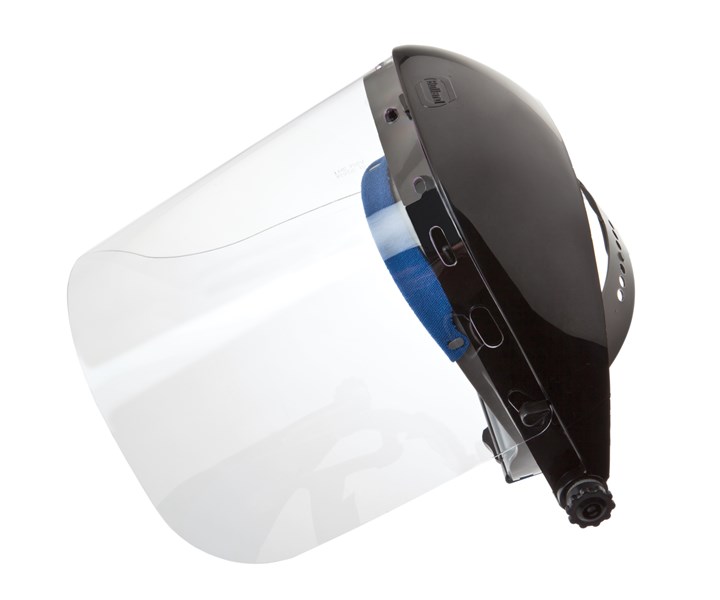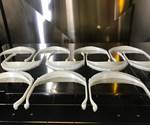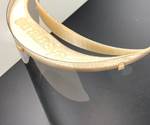Eastman Donates Material For Coronavirus Face Shields to Protect Medical Workers
The Tennessee Higher Education Commission is coordinating the effort to make 10,000 face shields in two weeks using 3D printers located at universities throughout the state.

Eastman has manufactured and donated material being used to produce face shields at East Tennessee State University (ETSU) and at colleges and universities across the state.
Eastman team members have quickly mobilized to produce material that is urgently needed for a collective effort to create face shields for Tennessee health care workers on the front lines of the COVID-19 pandemic.
Eastman has manufactured and donated material being used to produce face shields at East Tennessee State University (ETSU) and at colleges and universities across the state.
The Tennessee Higher Education Commission is coordinating the effort to make 10,000 face shields in two weeks using 3D printers located at universities throughout the state. Especially in Nashville, medical personnel face a shortage of protective face masks. Universities stepped in to close that gap by making face shields with 3D printers. Austin Peay, located in Clarksville near Nashville, started purchasing acetate sheet from Hobby Lobby stores to produce the shields that provide a safe barrier from infection when treating patients with COVID-19.
The largest component of the protective barrier – the large, clear plastic shield that attaches to the wearable frame that is 3D printed – became the project bottleneck when the supply of acetate sheet dried up locally. Eastman says the company received a call on Saturday, March 21 to see if they could produce and donate emergency material to aid this cause.
By Monday morning, Eastman Polymer Technology Division teams in B230 – with operators Jill Cline and Patsy Barton in the lead -- were turning out rolls of Eastman PETG specifically for the face shield effort. Chad Frazier, Group Leader for the B230 lab, played a key role in detailed planning work. PETG is Eastman’s core copolyesters commonly used for rigid medical packaging and medical devices.
By Tuesday night, 1,000 feet of PETG film was on site at Austin Peay University in Clarksville, and the school’s project coordinator soon reported to Doug McWilliams, Director of CE Biodegradable Polymers, that the Eastman material was working perfectly.
Eastman PTD continued running film, and by Wednesday, operations had produced enough rolls to make 10,000 face shields.
“Wow – to think we were trying to figure out how to help on Saturday night and you all have some sheets ready to go this (Monday) morning – that is amazing,” said Brendan Boyd, Eastman vice president of specialty plastics and fibers technology. “To see how you responded – getting this done safely and quickly to help first line medical personnel in Nashville is incredibly awesome. Rising to the occasion like this is a great sign of how we will weather this storm by working together.”

Related Content
-
NPE 2024: Additive Manufacturing Assisting, Advancing Plastics Processing
Exhibitors and presenters at the plastics show emphasized 3D printing as a complement and aid to more traditional production processes.
-
Medical Manufacturer Innovates with Additive Manufacturing and Extrusion Technology Hubs
Spectrum Plastics Group offers customers two technology hubs — one for extrusion, the other for additive manufacturing — to help bring ground-breaking products to market faster.
-
The Connector Conundrum: 3D Printed Mold Tooling’s Role in Innovation
ReelView Fishing faced an electronics obstacle in the development of its new technology for underwater video. Additive manufacturing for moldmaking allowed for the speed necessary to iterate to a solution. How inventors and invention will benefit from new ways of obtaining production-ready tooling.
















